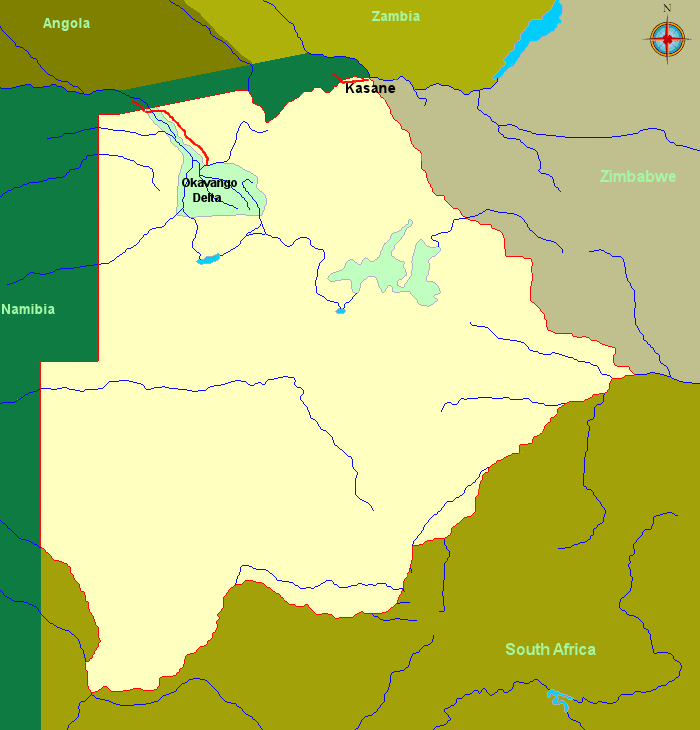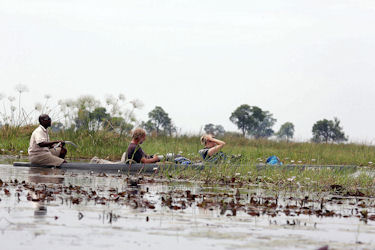Botswana

Historie
The original inhabitants of southern Africa were the Bushmen (San) and Khoi peoples. Both speak Khoisan languages
and hunted, gathered, and traded over long distances.
Sometime between 200-500 AD, the Bantu-speaking people who were living in the Katanga area (today
part of the Democratic Republic of the Congo and Zambia) crossed the Limpopo River, entering the area today known
as Botswana/South Africa as part of the Bantu expansion.
The Bantu-speaking society was highly a decentralized feudal society organized on a basis of kraals (an enlarged
clan), headed by a chief, who owed a very hazy allegiance to the nation's head chief.
In the 19th century, hostilities broke out between Tswana inhabitants (part of the Bantu-groep) of Botswana
and Ndebele tribes who were making incursions into the territory from the north-east.
Tensions also escalated with the Dutch Boer settlers from the Transvaal to the east. After appeals by the
Batswana leaders Khama III, Bathoen and Sebele for assistance, the British Government put
"Bechuanaland" under its protection on 31 March 1885.
When the Union of South Africa was formed in 1910 out of the main British colonies in the region, the
Bechuanaland Protectorate, Basutoland (now Lesotho) and Swaziland (the "High Commission
Territories") were not included, but provision was made for their later incorporation.
However, their inhabitants began to be consulted by the UK, and although successive South African governments sought
to have the territories transferred, the UK kept delaying; consequently, it never occurred.
The election of the Nationalist government in 1948, which instituted apartheid, and South Africa's withdrawal from
the Commonwealth in 1961, ended any prospect of incorporation of the territories into South Africa.
In June 1964, the UK accepted proposals for a democratic self-government in Botswana. The 1965 constitution led to
the first general elections and to independence on 30 September 1966.
Seretse Khama, a leader in the independence movement and the legitimate claimant to the Ngwato chiefship, was
elected as the first President, going on to be re-elected twice.
The presidency passed to the sitting vice-president, Quett Masire, who was elected in his own right in 1984 and re-elected in
1989 and 1994.
Masire retired from office in 1998. He was succeeded by Festus Mogae, who was elected in his own right in 1999 and re-elected
in 2004.
The presidency passed in 2008 to Ian Khama (son of the first President), who had been serving as Mogae's vice-president since
resigning his position in 1998 as Commander of the Botswana Defence Force to take up this civilian role.
I visited Botswana in november 2014.
It was part of my Cape Town - Victoria Falls trip
On that trip i have seen
Okavango Delta
Kasane
Please let me know when you're having questions.
i would be pleased to help you.
Things to do and other tips
